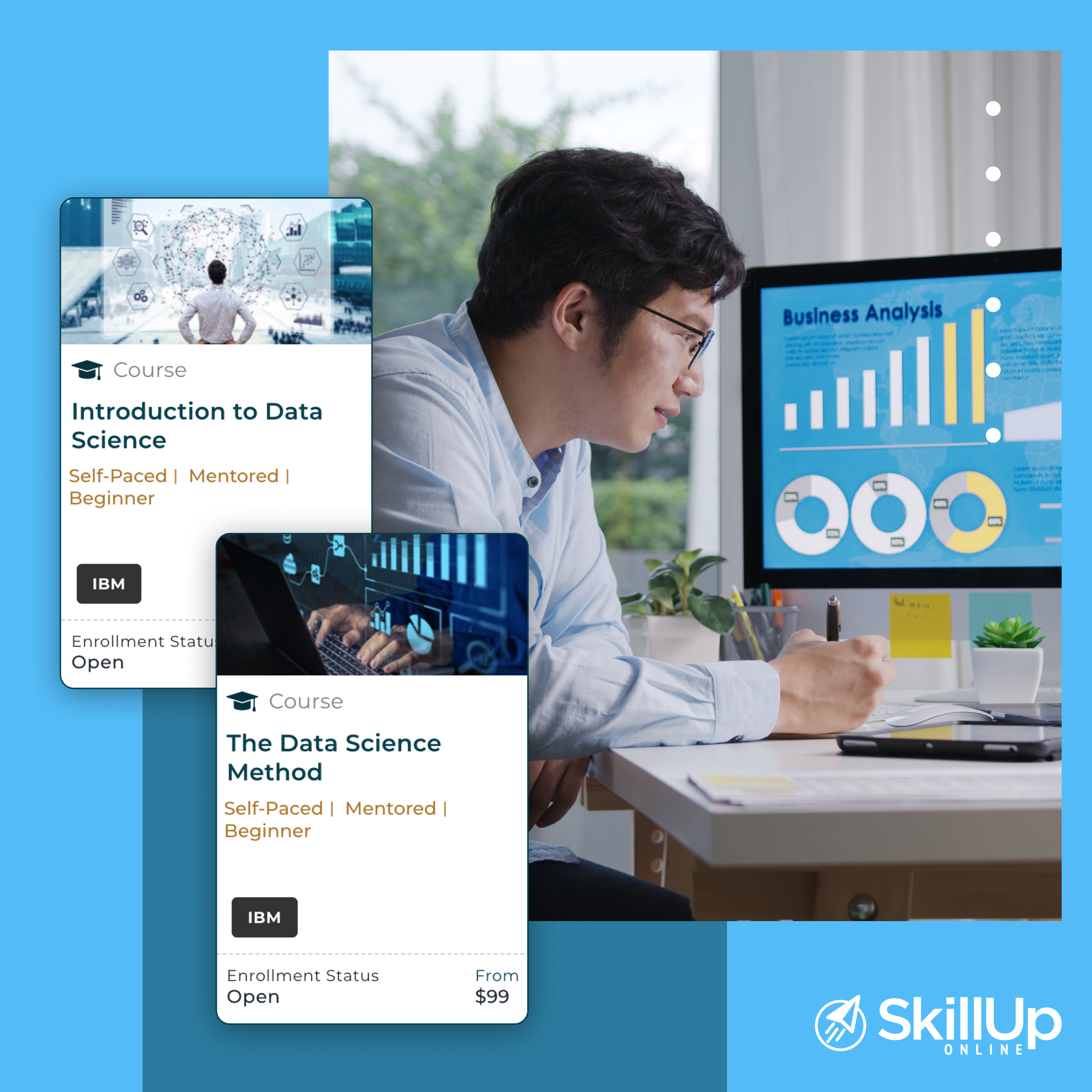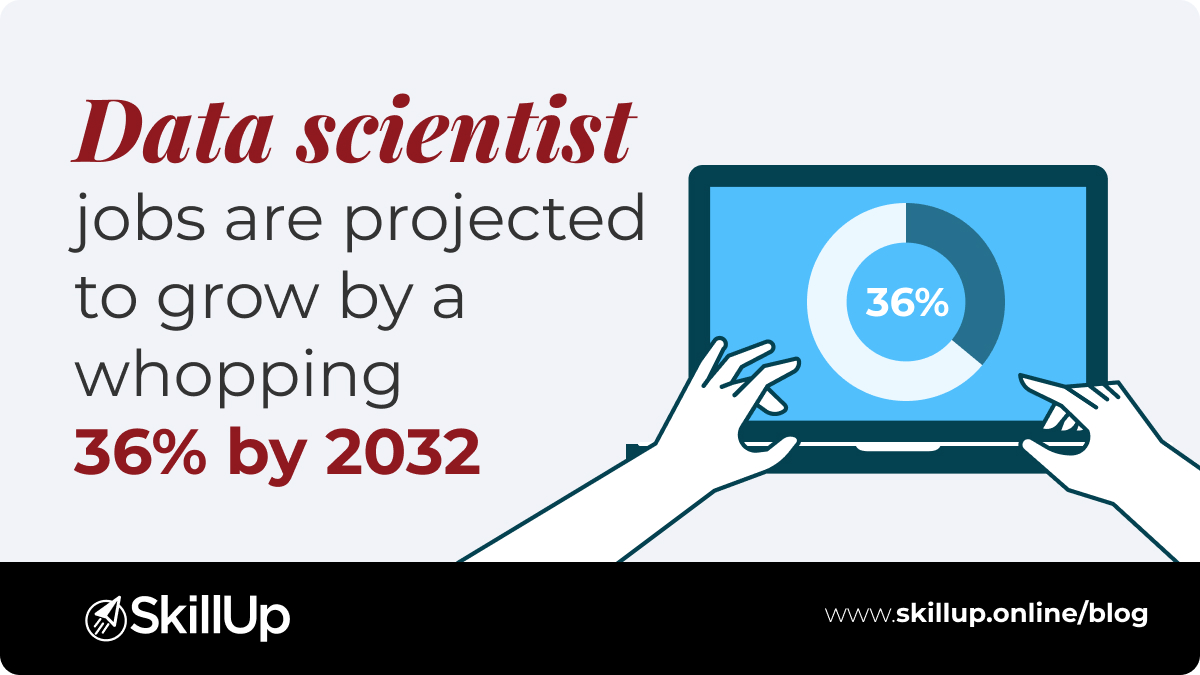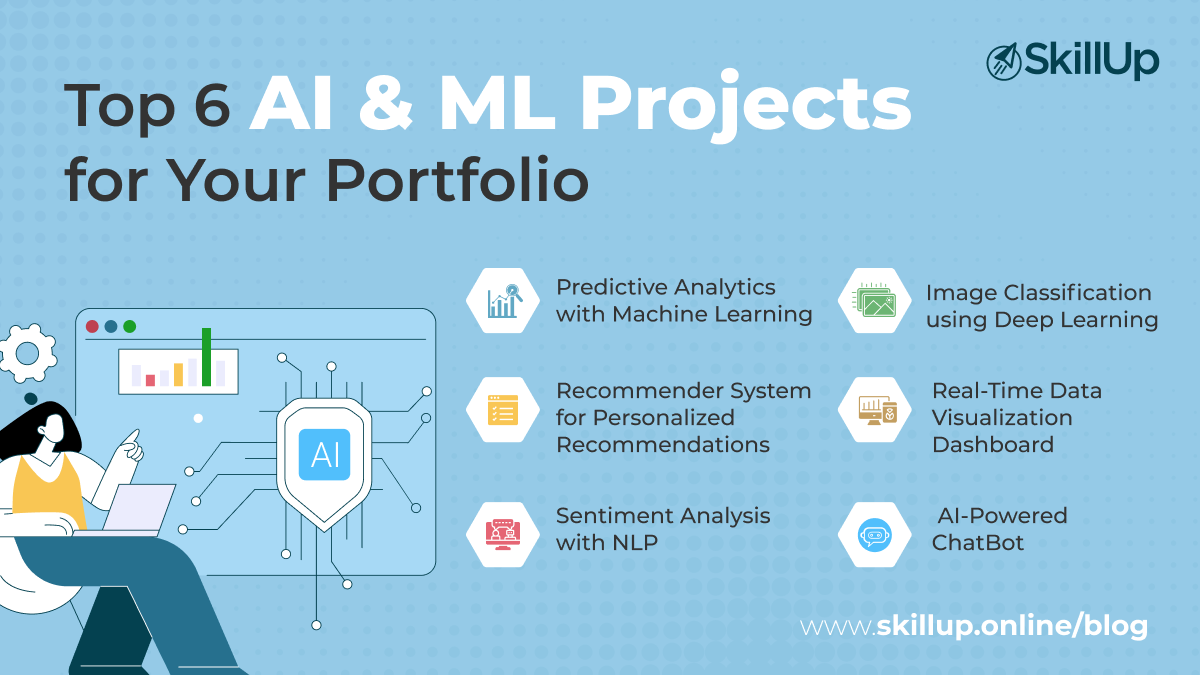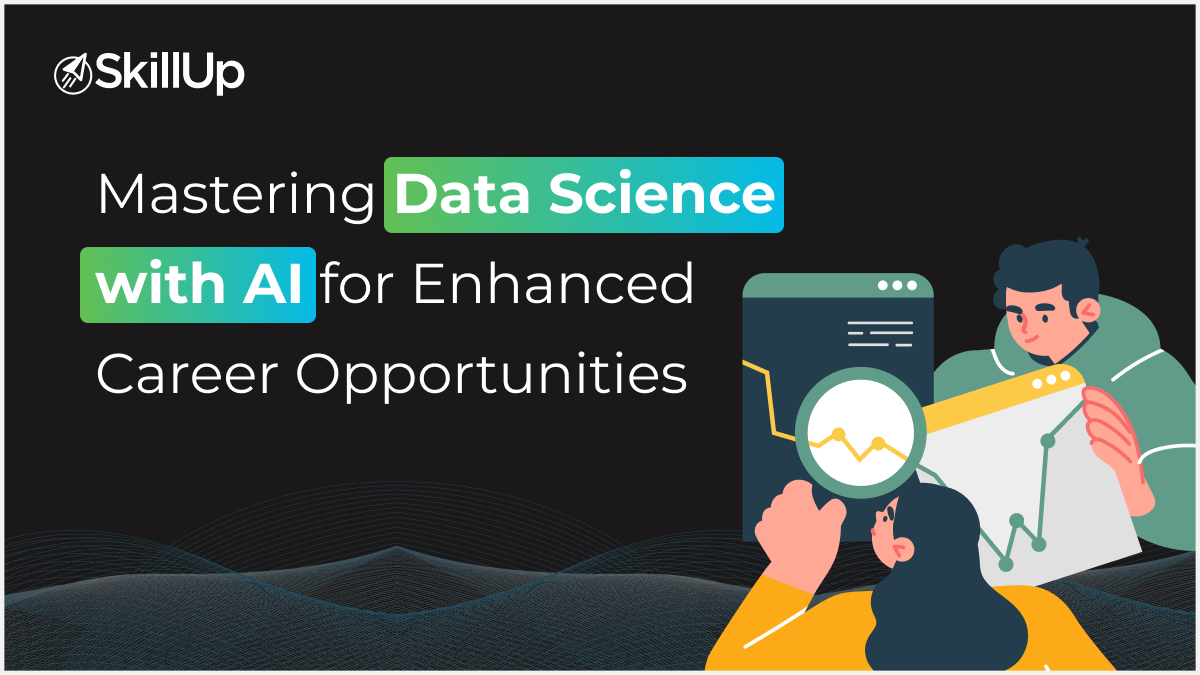If you are looking for a career that will reward and challenge your technical skills, plus provide you with excellent development opportunities, then data science should rank high in your list of options.
According to LinkedIn, as of March 2022, in the US alone, there are over 24,000 jobs for data science specialists. If you dig further, you’ll find over 94,000 job openings for data science professionals at entry and associate level. Data scientists in America earn $113,000 on average and salaries are just as competitive across the globe. So it will come as no surprise that Glassdoor has listed data science as one of the top three career paths in the US.
What’s the story? Why are businesses so excited about data science?

Put simply, data has become a source of competitive advantage for a business. However, this advantage can only be realized once meaningful insights have been extracted and effective decisions made. This is where data science steps in.
Picture the journeys consumers take; every step translates into data. When they shop, the transaction becomes a data point. When they watch their favorite film on Netflix, they leave behind a data footprint. When they use an app to track their 5k run, they create a trail. Millions of raw bits of information are gathering every second and it is data science that is making sense of it all.
By using advanced statistical techniques, algorithms, and models to classify raw data and find patterns, data scientists extract valuable business information. When presented in the right way, these golden nuggets can then be used by decision makers to identify market gaps, spot opportunities, improve customer experience, and enhance business efficiency.
When you think of it in this way, you start to see why businesses have got so excited about data science.
Are there enough opportunities in data science for a successful career?
Over the last ten years, data science has become one of the most sought after career paths for long term growth. Almost every industry, be it financial, manufacturing, health, entertainment, or retailing has been investing heavily in data science tools and applications to gain the critical insights they crave.
Thus, with 11.5 million jobs predicted by 2026, the demand for experienced professionals is far outstripping the supply. And when viewed from this perspective, data science becomes an extremely attractive option to individuals with the right skills.
However, that’s not all there is to it. A career in data science offers rich pickings in other ways too.
- It offers very competitive salaries and career growth
The average base salary of a data scientist with a few years’ experience in the US is $106,000 per year; plus many enjoy excellent median bonuses. A typical annual base income of $140,000 is expected when you reach the managerial level. Add to that the fact that 40% of data scientists have less than five years’ experience and 69% have less than ten, and you begin to see that this is a field in its infancy and those looking to pursue careers in data science have a lot of potential to grow.

- It is industry agnostic
Whether your future employer is in software, IT, ITES, financial services, retailing, e-commerce, or healthcare, data is vital for their business. However, because of the nature of the tasks, professionals with data science skills are able to work across industry segments; which makes for a wide range of opportunities for talented professionals at all stages in their career.
- Highly regarded job profile
For Fortune 1000 enterprises, a mere 10% increase in the accessibility of data can lead to exponential revenue growth. Data scientists are justifiably perceived as helping companies make smarter and better business decisions. And in turn, find themselves often enjoying high regard within an organization and within an industry.
- Career of the future
It’s been calculated that an average person creates 1.7 MB of data every second. Collectively, not only is this growing day in, day out, but it is only going to increase as newer technologies and platforms come into play. The need to analyze and make sense of this data is not something that is going to disappear soon, and skilled individuals with creative ideas on how to analyze it are going to fly.
How do you become a data science professional?
Data science is as well-suited to a university graduate starting their career as it is for someone looking to switch mid-way.
If you’re already exploring data science, then it’s likely that your interests are aligned with many of the skills required. You may be a mathematician, for example, or a computer science expert. While these subjects can provide a great foundation for a career in data science, though, alone they may not be sufficient; additional training is required.
The good news is that this isn’t a problem. There are plenty of opportunities to build the additional skills you need; from face-to-face classes, to online virtual instructor-led webinars, to self-paced courses. The types of skills we’re talking about include Python programming, data analysis, and data visualization. But don’t worry, if you’ve never programmed before, Python – one of the most popular languages used in data science – is easy to learn and easy to use. Plus, if you need to work on your knowledge of statistics, that’s fine, you can pick up the fundamentals without a problem.
Ultimately, the key is to dive into the world of data science. Check out articles and videos on the internet. Find trusted sources of information and read all you can. Investigate the history of the field, get a feel for where things currently are, and consider where data science is heading.
Once you’ve built up some background knowledge, you can then review your learning options for gaining the in-demand skills and certifications you need. A good example of entry level training is the IBM Data Science Professional Certificate. It’s a program that will provide you with the startup competencies you need and help you decide where you’d like to specialize in the future.
Conclusion:
Looking at the massive amount of data being created, it is now an imperative that businesses put that data to productive use. It is data science that gives meaning to this raw data and converts it into valuable insights. Through the magic worked by data scientists, businesses are able to recognize market trends and identify new opportunities. They’re also getting to know their customers better which is enabling them to tailor their offering to suit market needs and wants.
With that said, therefore, it would not be an exaggeration to hail data scientists as the superheroes of the modern commercial world. And with the specialized skills required in such a state of under-supply, you could be looking forward to a very lucrative and interesting career indeed if you so choose.

CEO, SkillUp Group




